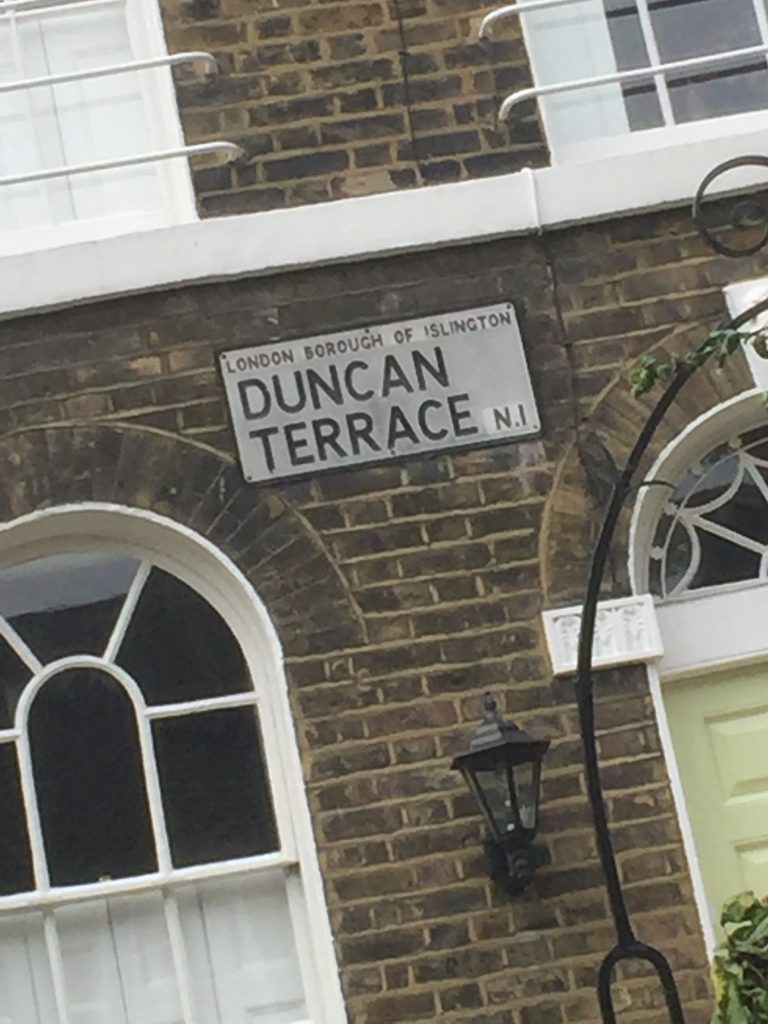Exploring Islington and the law around mental health (Exploring the Law)
In the induction period, new LLB students at the City Law School were asked to undertake the ‘Exploring the Law’ activity – wandering round the local area to find certain buildings, statues, streets or murals on one of eight trails around legal London (compiled by Emily Allbon), along with their tutor group. They then penned a short blog on some aspect of their travels. 21 students were chosen as winners and these will be posted here on Lawbore Future Lawyer. This excellent piece was chosen as one of the 21 – well done to Ahmad Dana.
Despite living in London for almost my entire existence I still find myself taking wrong turns, getting lost for a good half an hour or so but meanwhile getting the chance to explore segments of the city I had never witnessed before. Even with Google Maps, the city is a maze, though never a boring one. Undertaking this journey through ‘Legal London’ with a group of people I had never met was a rather a daunting prospect, but a reminder of how in life, especially in the legal world, the most important resource is the people around us. A reminder that the law is fundamentally about the human being.

The journey took us through some beautiful pieces of architecture symbolic of the law which binds us all, such as the remarkable Middle Temple. However, it was the house at 64 Duncan Terrace which caught my attention the most. Not because of the property’s dazzling aesthetics, on the contrary the house was quite ordinary and unremarkable, but because of a famous previous occupant: the essayist, poet and antiquarian Charles Lamb.
Now don’t get me wrong it is not Mr. Lamb himself that interests me, I didn’t even know what an ‘antiquarian’ was before I researched him, but the fact that it was at this house, 64 Duncan Terrace, where his sister committed matricide by stabbing their mother in the chest. The coroner delivered a verdict of lunacy of the murderer, Mary Lamb, who had suffered a severe mental breakdown. The ongoing debate in this country about how we treat mental illness and the attitudes and stigma towards it sparked my interest into this case. Mary, as a result of her illness, was not incarcerated but instead confined on and off to medical facilities that at the time were woefully inadequate at treating the mentally ill.
This also raised a question in my mind as to how satisfactory the law is when it comes to the mentally ill. How accurately can you determine whether or not the cause of the crime was the psychological instability? How do you appropriately charge and sentence a mentally ill individual who may have committed a serious crime as Mary Lamb had? How many crimes can be attributed, at least some part, to mental illness? All highly thought and emotionally rendering questions which suggest that perhaps the most important aspect of the law is the human being. The ability to empathise with your fellow human is something that is often lacking in a society which is heavily based around individualism, especially in the non-stop behemoth that is London. Without empathy, the law becomes almost alien to many people, as it lacks a human touch. Perhaps this is also because society has been changing rapidly over the past couple of decades and laws, which were largely written by an almost entirely different generation, are often slow to adapt and change to take into account issues we have more of an understanding of, like mental illness.
Embarking on this journey through ‘Legal London’ has made me realise how slow legislation can be in keeping up with ever-changing societal values. For example, it took us, the UK, an awfully long time to introduce gay marriage even though the majority of society was in favour – the Scandinavians and the Dutch had us squarely beat in introducing marriage equality. Now the law, and other institutions such as healthcare, needs to keep up with our further understanding and evolved attitudes on mental health and other contentious issues, hopefully the promised overhaul of the Mental Health Act results in a more just way of treating the mentally sick. We may not lobotomise the mentally unwell anymore, but that doesn’t make the law perfect.
